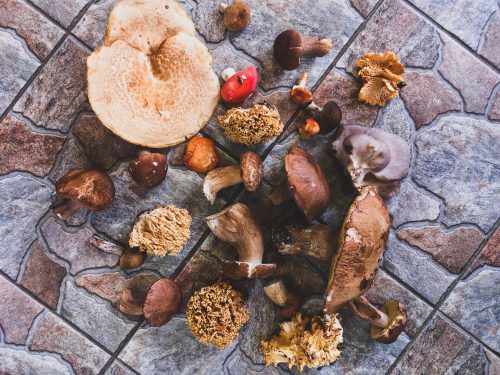Is mushroom compost good for gardens?
Found yourself asking ‘Is mushroom compost good for gardens? Let us help with the answer
Found yourself asking ‘Is mushroom compost good for gardens?’
Let us help with the answer.
What is mushroom compost?
For starters, mushroom compost does not contain mushrooms! It is, however, a byproduct of mushroom growing.
Mushroom compost is composted for about 30 days at 160 degrees so that any weed seeds, pests, or other nasties are eliminated.
It’s then inoculated with mushroom spawn, and covered with sphagnum moss and ground limestone – all of which helps the mushrooms to grow.
When there have been around three to four weeks of mushroom growth, this mixture will no longer be fit for purpose, but it doesn’t have to be thrown away as it can be used as a substrate for garden plants.
Is mushroom compost good for the garden?
So, is mushroom compost for garden really any good?
After all, if it’s not beneficial to the growth of mushrooms, why should it work for garden plants?
Actually, adding mushroom compost to garden has its pros and cons, so here are a few things to consider before buying:
Pros
- Mushroom compost is fantastic when it comes to adding macronutrients to the soil. These include nitrogen, phosphorous, potassium, calcium, magnesium and iron
- It’s rich in organic matter, which means that it helps the soil to hold water more efficiently as well as increasing the activity of any microbes it contains
- Mushroom compost is great for improving the structure of clay or soil that’s more compacted and this in turn helps with drainage
- It contains high levels of calcium which can benefit some plants such as tomatoes
- On the whole, it’s suitable for most garden plants
Cons
- The nutrients contained in the compost are not consistent and will vary depending upon its composition
- The soluble salts and other nutrients it harbours can potentially kill seeds that are germinating. It can also be harmful to young seedlings, and detrimental to plants that are sensitive to salts
- High levels of calcium can increase soil pH and increase its alkaline levels, which can damage some plants such as blueberries that need acidic soil
- It can be expensive, and it is not easily available
How to use mushroom compost in the garden
Add mushroom compost to your garden soil and this will improve its structure, boost nutrient availability, and become a fertile place for beneficial microorganisms.
- You need to create a layer, between two and four inches, of compost over your garden beds and then work it into the top six to eight inches of soil
- Add it to your garden soil in early spring or for vegetable gardening use it the entire summer
- To help container plants thrive, mix in ¼ mushroom compost with ¾ of your potting soil
Garden solutions: Mushroom compost
Great for soil that’s rich in nitrogen
Mushroom compost has already been used to grow mushrooms, which means it will probably contain less nitrogen than regular compost. This makes it a potentially good choice for soil already rich in nitrogen since excess nitrogen leads to overgrowth of foliage and stunted roots.
Environment-friendly
As a byproduct that’s no longer being used elsewhere, mushroom compost is a great eco-friendly resource for any gardener.
Beneficial pH range
Fresh mushroom compost has an average of 6.6, so it falls right into the ideal pH range for most crops between 6.0 and 7.0.
High in calcium
Mushroom compost is high in calcium owing to the addition of chalk, so is great for plants like tomatoes as it helps tamp down blossom-end rot.
Benefits of mushroom compost
- Great for improving the structure of soil
- Mild nitrogen content means it can be used in soil that’s rich in nitrogen
- High in calcium, and therefore good for growing calcium-needy plants like tomatoes.
- Helps to improve water retention in soil
- Attracts earthworms
- Works as a slow-release fertiliser
- Fantastic eco-friendly resource for the garden
As you can see, mushroom compost is great for certain kinds of plants, less effective for others.
If you’re looking for a compost that works for all your plants, then browsing our range of multipurpose compost is the place to start.










The information below is required for social login
Login
Register
Fill in the form below to create your new account